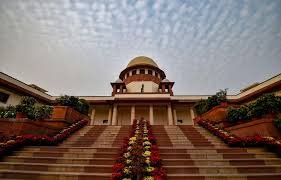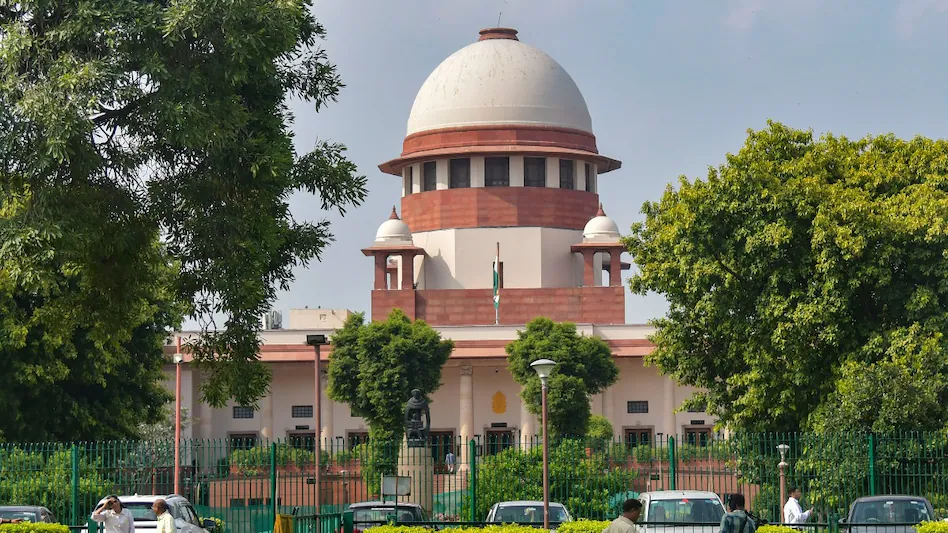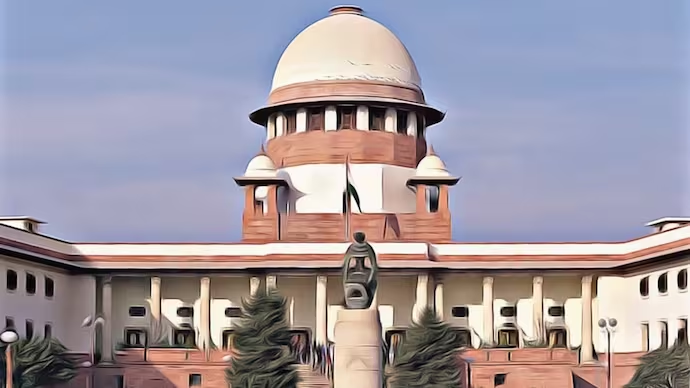| In Short |
| The Supreme Court has asked the Centre for an update on pending judicial appointments, specifically reiterated names. |
| The Collegium system, responsible for judicial appointments, continues to face friction with the executive over delays. |
| Several high courts are functioning with up to 40% vacancy rates, leading to massive case backlogs and delays in justice. |
| The judiciary insists that delayed appointments undermine judicial independence, while the Centre has raised concerns about transparency. |
| The court’s latest directive could pressure the Centre to expedite long-pending judicial appointments and resolve the ongoing stalemate. |
In the tussle between the judiciary and the executive on judicial appointments, the Supreme Court asked for a status report from the Centre regarding the delay in clearing judicial appointments. In fact, this court’s directive primarily revolves around reiterated names sent back by the Centre and reapproved by the Collegium of the Supreme Court yet awaiting final approval. The delay happened at a time when pending promotions will see a spate of vacancies in high courts-making the judiciary inefficient.
The prickly reminder by the Court to the Centre
On September 20, 2024, a bench led by Chief Justice of India (CJI) D.Y. Chandrachud expressed exasperation by the long time taken by the Centre in acting on Collegium recommendations. The Collegium system through which judges are appointed to the Supreme Court as well as the High Courts has remained perpetually on frictional grounds between the judiciary and the executive. It is in this light that the Supreme Court reminds us that the Centre is statutorily obligated to act on reiterated names without delay in order to affirm its independence.

The bench made it explicit that Collegium is not a “short-listing committee,” and the ultimate call remains in the judicial domain. According to an inside report, several names shortlisted for judges are with the executive and the court is worried that these long-delayed decisions might jeopardize an efficient judiciary
A Debate Already on for Several Decades This is a long debate between the Collegium and the Executive.
For decades, the Collegium system has been the spine of judicial appointments in India but increasingly criticizes the executive for obscurity. The job of the government here involves screening and giving its concurrence to names forwarded by the Collegium. However, when the Collegium returns a name for reconsideration, it becomes constitutionally obliged to give its concurrence for appointment.

Over the last few months, the Supreme Court has again and again read out a list of names, most of which were first proposed by the collegium over a year ago. However, even now, the Centre hasn’t acted on those names and judicial heads have responded by going to the Centre for an official status report. Such a delay hasn’t just caused some appointments to lag but, more seriously, affected the overall functioning of a few High Courts, which are bearing with quite serious judge shortages.
Judiciary on Vacancies and Delayed Judgments
As of mid-2024, almost 40% of judicial posts in high courts across the country are still vacant, thereby exponentially increasing the burden on the existing judges and delaying justice to many citizens. The lack of appointments has caused a strain on the efficiency of the judiciary wherein case backlogs continue to mount unabated. This is a critical situation in Uttar Pradesh, Maharashtra and West Bengal, among others, as the number of pending cases is at an all-time high.
A Bench of the Supreme Court once observed that appointments to the judiciary cannot be a matter of executive discretion and any delayed confirmation of reiterated names jeopardizes the independence of the judiciary. The delay on the part of the Centre in processing these names has raised constitutional concerns, for as long as the balance between the judiciary and the executive remains a sensitive subject
The Collegium’s Role and its Limitations
The Collegium system, as it came to be known, has been underlined through a series of judgments by the Supreme Court, giving the judiciary absolute discretion in the choice and appointment of judges. The whole system works through a collegium of the Chief Justice of India and other senior judges who propose names for appointment as judges in each rung.
However, the system is not without its shortcomings. Critics argue that the Collegium lacks transparency and accountability, with a lot of decisions shut behind closed doors. Still, the judiciary assures that the system is pivotal in protecting judicial independence.
The Centre has discretionary authority to return recommendations for reconsideration that at times indefinitely delay the decision. This judicial-executive logjam has been an occasional phenomenon; the current scenario with inescapable delays in appointments has revived the controversy relating to judicial reforms
What is in Store?
A firm stance of the Supreme Court to get an update from the Centre may now see a greater pressure on the government to push up judicial appointments. Though there would be changes in the Collegium system later, filling the growing number of vacancies in the high courts in every nook and corner of the country seems to emerge as the primary priority of the judiciary.
The Centre is likely to give a detailed status report on the pending appointments and make clear its stand on the names reiterated by the Collegium in the coming weeks. How the Centre responds to this call will go a long way in determining whether the ongoing rift between the executive and judiciary can be resolved.
This renewed demand for process transparency has also thrown up again the question of judicial reforms, which some have even suggested may decrease friction between the two branches of government if there were a more open process of selection. That is unlikely to happen without considerable political and constitutional consensus over any adjustments to the judicial appointment system.
For Latest News Updates, Click Here.
